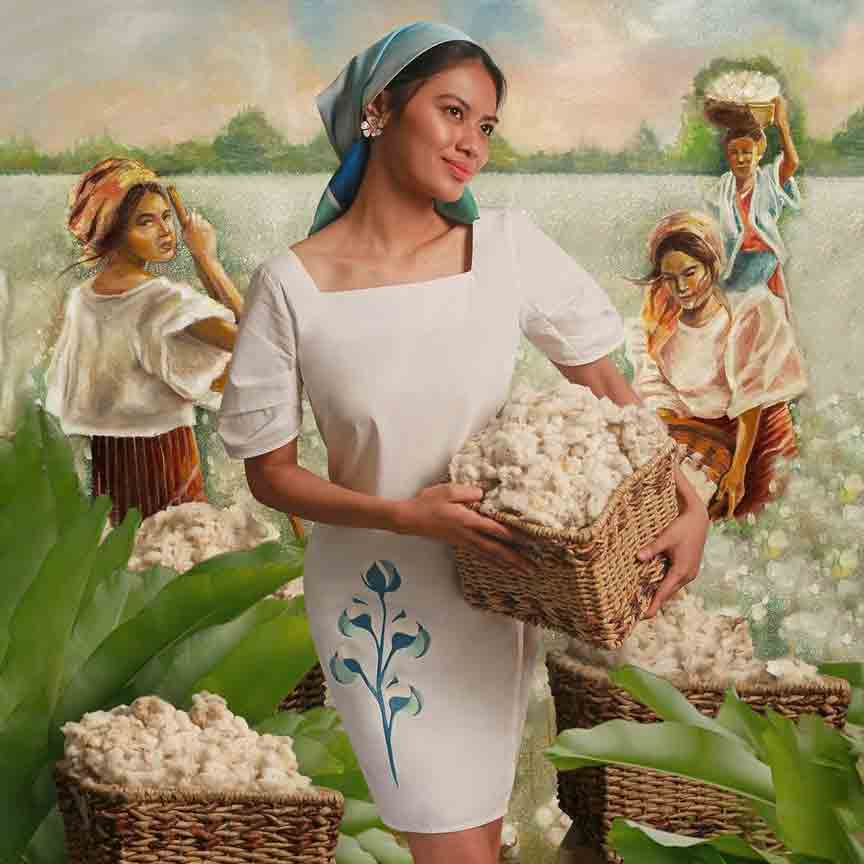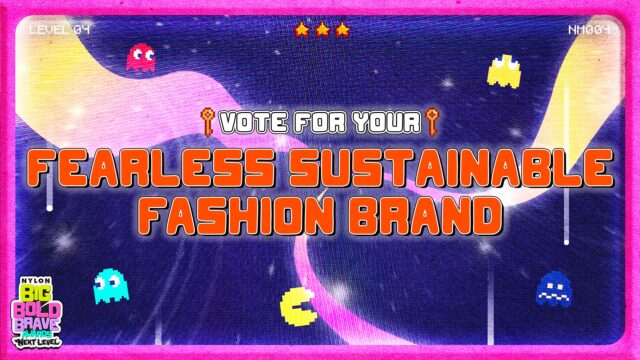HABI Connects’ goal is for the Philippine weaving industry to get a bigger spotlight
Related: These 6 Sustainable Filipino Brands Are Turning Old Clothes And Retaso Into Statement Pieces
Weaving is considered an important cultural tradition in the Philippines. It is an activity and art form that has been practiced by and passed on to generations all over the country. The use of textiles like abaca and pineapple to make intricate patterns, fabrics, and garments have amazed people both locally and abroad. History, culture, and tradition go hand-in-hand when it comes to weaving.
HABI and HABI Connects

However, in these modern times, the local weaving industry continues to face many challenges including a lack of facilities, accessibility of supplies to weavers, and overall support. The pandemic has made these problems worse. This is where HABI: The Philippine Textile Council comes in. For more than a decade now, the group has been promoting, preserving, and sustaining the local textile industry through different initiatives that connect consumers with Filipino weavers such as the Likhang HABI Market Fair.
Now, they are launching a new initiative, HABI Connects, that will raise awareness of Filipino weaving to the important players of the business community. The campaign will help encourage more businesses and entrepreneurs, both local and foreign, to support the Philippine weaving industry and weavers around the country. They specifically want to connect Filipino weavers with more local and global brands and businesses.
HABI x Bayo
Already, their first initiative is through a collaboration collection with the local clothing brand Bayo called HABI x BAYO Filipina Fashion (R)evolution. The women’s collection aims to mix the use of local textiles with the everyday sensibilities of a modern Filipina. The clothes are made with a variety of local textiles and fabrics such as cotton, abaca, and piña. They are also made by different weaving communities located across the country from La Herminia in Aklan, Ambension in Bulacan, and Argao in Cebu.
Some of the pieces of the collection include:
Azule Dress

A round neck layered sleeves tiered midi dress made from cotton and handwoven pineapple linen.
Amor Top

A sleeveless top with pleated cascading detail in blue uneven stripes made from cotton and pineapple linen. Made by the weaving community of La Herminia in Aklan.
Amaya 2 in 1 Blouse

A Filipiniana top with embroidered detail on the V-neckline and detachable fabric sleeves.
Arisa Shorts

An adjustable waisted shorts with a folded hem and detailed embroidery made with 100% cotton and handwoven fabric. Made by the Argao community weavers.
Blessie Cardigan

Made with RPET (Recycled Polyethylene Terephthalate) protective fabric that has handwoven upcycled details by the weaving community of Argao
The collection is also environmentally friendly and sustainable. This is because the pieces feature weaves of polyester worked with cotton threads to upcycle industry scraps or production off-cuts. This is also to prevent the clothes from ending up in landfills.
According to Laida Lim, president of HABI, their collaboration with Bayo is just the beginning. “With the HABI Connects campaign, we hope that more entrepreneurs and businesses, not just in fashion and lifestyle but also in other industries, will follow suit and support our local weaving communities.”
CONTINUE READING: These Local Brands Are Making The Tsinelas Look Stylish





